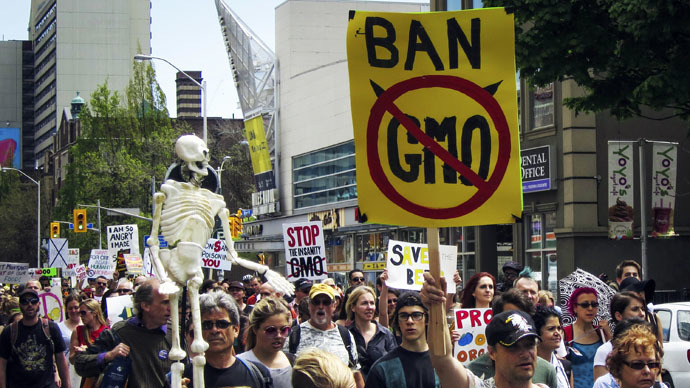
GMO Labeling Bill Gets Another Shot in Rhode Island
A bill has been introduced in the Rhode Island Legislature that would require labeling of any genetically-engineered ingredients in food consumed by humans.
State Sen. Donna Nesselbush recently introduced two nearly identical bills to the Senate Health & Human Services Committee that would demand disclosure of any foods or ingredients that were genetically manipulated, making Rhode Island the latest state to respond to the popular movement seeking to mandate labeling.
March 9, 2015 | Source: RT | by
A bill has been introduced in the Rhode Island Legislature that would require labeling of any genetically-engineered ingredients in food consumed by humans.
State Sen. Donna Nesselbush recently introduced two nearly identical bills to the Senate Health & Human Services Committee that would demand disclosure of any foods or ingredients that were genetically manipulated, making Rhode Island the latest state to respond to the popular movement seeking to mandate labeling.
The differences in the two bills lies in how they when they would be implemented. If passed, Rhode Island’s Senate Bill 549 would simply go into effect on Jan. 1, 2017.
Senate Bill 557, however, includes a trigger clause, requiring four US states outside of Rhode Island — including one adjacent state — with an aggregate population exceeding 20 million to pass similar legislation.
Both bills would also disallow any GMO products from being regarded as 'natural' foods.
Bills requiring GMO labeling fell short in the Rhode Island legislature in both 2013 and 2014.
In opposition to labeling laws, major agribusiness and biotechnology conglomerates like Monsanto have spent immense amounts of cash to cloud the ‘right-to-know’ movement in the US.
According to the Center for Food Safety, dozens of states have in recent years considered labeling legislation and ballot initiatives while a handful have passed laws mandating GMO (genetically-modified organism) transparency. Voters in California and Washington State narrowly rejected ballot initiatives in 2012 and 2013, respectively, though not without dragging the likes of Monsanto, Bayer, and Dow Chemical into expensive campaigns to defeat the measures.
Last November, labeling efforts were defeated in Colorado and Oregon, albeit narrowly for the latter state. In what became the most expensive campaign in Oregon’s history, Yes on 92 – the pro-labeling contingent – was outspent $21 million to $9 million by No on 92, which included major agribusiness and biotechnology companies with deep pockets, including Monsanto and DuPont, as well as anti-labeling trade group the Grocery Manufacturers Association.
One labeling effort succeeded in November, in Hawaii’s Maui County, though Monsanto and Dow Chemical quickly sued the county despite voters’ wishes.
